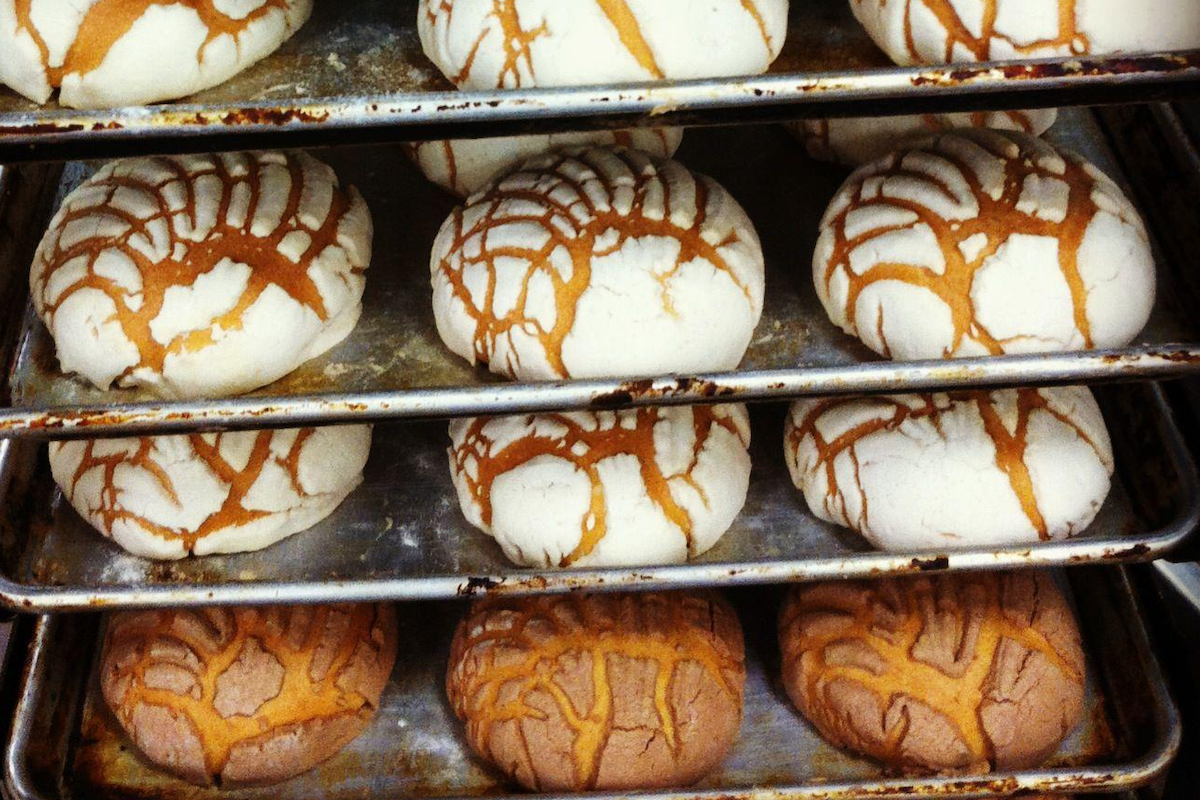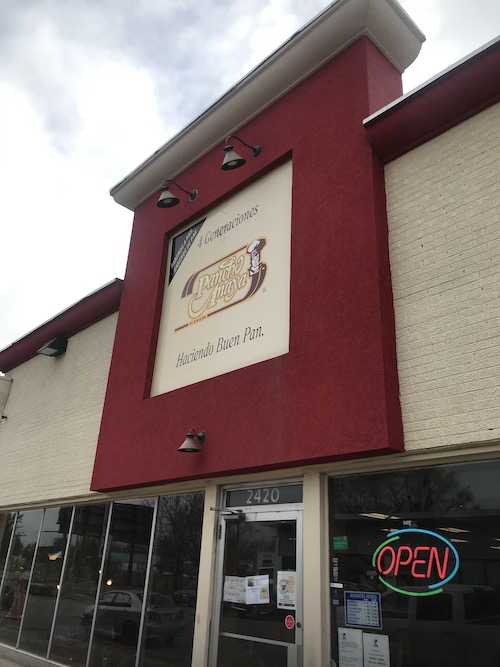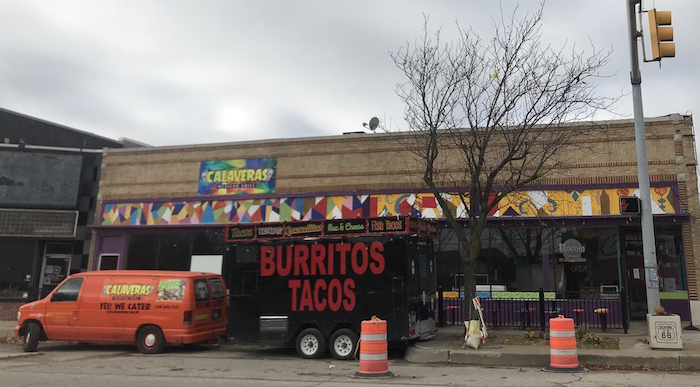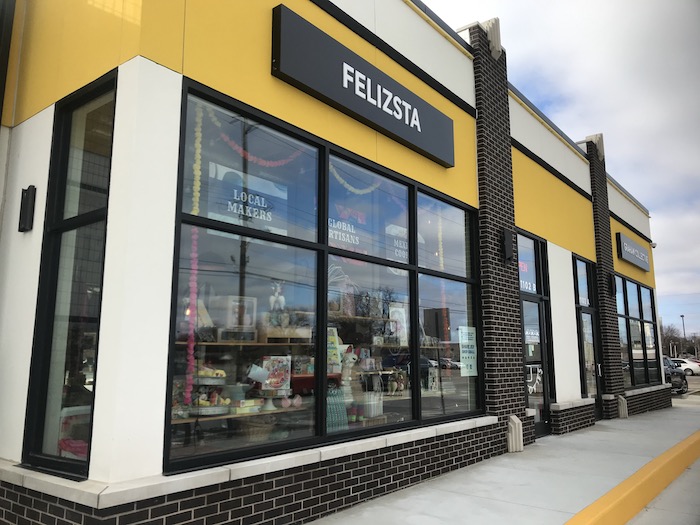

Photo courtesy of Pancho Anaya Bakery
TULSA, Oklahoma — Kendall Whittier, a neighborhood located east of Tulsa’s downtown area, is full of Latino flair. A national preservation organization recently recognized the neighborhood’s Main Street program for its efforts to create a vibrant community.
“Latinx culture has been at the heart of Kendall-Whittier for the past 30 years,” said Katia Anaya Braga, whose family-owned Mexican-American bakery Pancho Anaya has been around for five generations and anchors the neighborhood. “It is seen in the neighborhood traditions, such as the annual bilingual Lights On celebration, the Mercado, and the Latinx-owned and serving businesses such as restaurants, grocery stores, convenience shops and my family’s bakery.”


The front of Pancho Anaya in Tulsa, Oklahoma (Photo by Kristi Eaton)
In October, the National Main Street Center, a part of the National Trust for Historic Preservation, announced Kendall Whittier Main Street (KWMS) as one of three community winners of the Great American Main Street Awards, which recognizes preservation-based commercial district revitalization. The other award winners were Tupelo, Mississippi, and Boyne City, Michigan.
“For the last decade, Kendall Whittier Main Street has been working hard to transform a historic neighborhood back to its early days as Tulsa’s first suburban shopping district,” Jessica Jackson Seay, executive director of Kendall Whittier Main Street, said in a statement.
Kendall Whittier has a storied history in Tulsa, Oklahoma’s second-largest city. The historic Route 66 runs through the neighborhood, and from the late 1920s through the 1950s, it was a busy shopping district. But when a highway bisected the neighborhood in 1967, the area struggled to recover, and by the early 2000s, Kendall Whittier was home to many vacant storefronts and adult-oriented businesses.
KWMS was started in 2010, when the neighborhood occupancy rate for businesses was just 35 percent. Through creative business recruitment and retention efforts, that rate has grown to 100 percent. The neighborhood also includes the local La Semana newspaper, family-owned Mexican restaurant Calaveras, and the Las Americas supermarket.


Calaveras in Tulsa, Oklahoma (Photo by Kristi Eaton)
Since 2013, 40 new businesses have opened, according to Jackson Seay. And in all, KWMS has seen a total of 350 jobs created and $158 million private dollars reinvested.
During the pandemic, KWMS created a rent-relief program for business tenants, giving out more than $36,000 in rent relief from May to June so no business would have to permanently shutter its doors. KWMS has also inspired the City of Tulsa to create a Destination Districts program that seeks to revitalize commercial districts throughout the city while creating more equitable opportunities for all Tulsans.
For Anaya Braga, she believes Latino entrepreneurs were key in slowing the decline of the neighborhood, while St. Francis Xavier Church drives many of the community’s cultural connections through festivals and traditional celebrations.
“It is important to note that Kendall-Whittier is the only neighborhood in the city of Tulsa that has grown inclusively, seeing a 209 percent increase in the past decade of Latinos with a bachelor’s degree or higher,” she said, adding that the neighborhood has also pushed for better representation by organizing and electing the first Latina school board member in the history of Tulsa Public Schools.
One new business in the district is Felizsta, which celebrates culture through foods, gifts and, most notably, its biscochitos.
Created by third-generation Mexican-American Lizette Corcoran, Felizsta —a combination of feliz and fiesta— started as a pop-up shop and online store. Felizsta has since opened up a brick-and-mortar shop and continues to ship orders nationwide.
“Both my parents and grandparents owned Mexican bakeries before me, but they were strictly brick and mortar,” Corcoran said. “They didn’t have the knowledge of setting up a website or online store. So, I started to help them and my parents really encouraged me to start my own brand and business. Hence, Felizsta was born.”


Felizsta in Tulsa, Oklahoma (Photo by Kristi Eaton)
Corcoran, who grew up in south Texas along the Mexico border, said she sees many similarities between that area and Kendall Whittier’s Latino influence.
“I’ve had such great feedback since opening our shop,” she said. “I love hearing customer stories about how they connect to the Latinx culture. It’s never the same: maybe they grew up in New Mexico or California or Guatemala or Peru. Whether they are white-skinned or brown-skinned or blue-eyed or brown-eyed. I’ve had so many different types of people come in and they all give such great positive feedback and love the vibrant colors of the culture. Felizsta really is a fun place to work and shop. And, I just hope to bring some happiness and positivity during these times.”
***
Kristi Eaton is a freelance journalist and Tulsa Artist Fellow based in Tulsa, Oklahoma. Follow her on Twitter at @KristiEaton.


